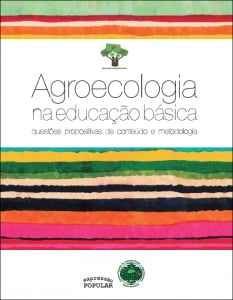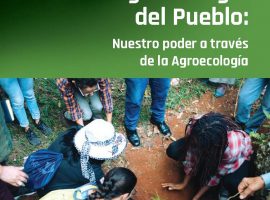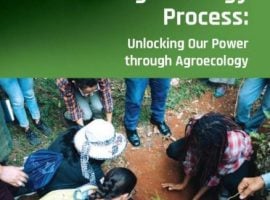WhyHunger’s International Solidarity Fund helps to support MST’s efforts to train teachers and young people in Agroecology and help them to develop educational practices to teach Agroecology in elementary and high schools in Brazil. We are excited to share this announcement from MST.
Egídio Brunetto, the Popular School of Agroecology and Agroforestry, launched in partnership with Expressão Popular publishing company, its first Training Book “Agroecology in Basic Education: Suggestions for Content and Methodology.”
Grounded in the mistica and the symbolism of collective work, the launch was attended by local authorities, Leftist organizations, students and educators of Agrarian Reform settlements.
The content of the publication was organized by popular educators: Dionara Soares Ribeiro, Elisiani Vitória Tiepolo, Maria Cristina Vargas and Nivia Regina da Silva.
In the material, priority was given to stimulating the study of agroecology as a mechanism to mobilize families, create self-esteem, strengthen the peasant identity, generate income and raise awareness of families in the countryside.
For the educators, the book shares recommendations of how to organize the school curriculum to respond to the different realities and experiences of each community, and leaves to each educator to decide which parts can be used in their classroom.
During the launch, Dionara Ribeiro, one of the editors, said that the creation of the notebook is a result of the work of 64 educators, at an important moment that was the basic course of agroecology that worked on “Agroecology in Basic Education in Rural Schools”.
In this sense, it reaffirmed the importance of working with agroecology with children, youth and adults, and that schools will be forming subjects with theoretical and practical appropriation to contribute to the transformation of their environment.
“Our focus is on transforming settlements and camps into agrochemicals-free territories, thus ensuring more health, biodiversity and better relations between people and nature,” she explained.
At the end of the launch, an ecumenical act was carried out with the planting of trees, to symbolically start a new cycle, accompanied by “many fruits”. According to the MST in the region, this booklet will strengthen the peasant identity through a process of building knowledge among rural families






